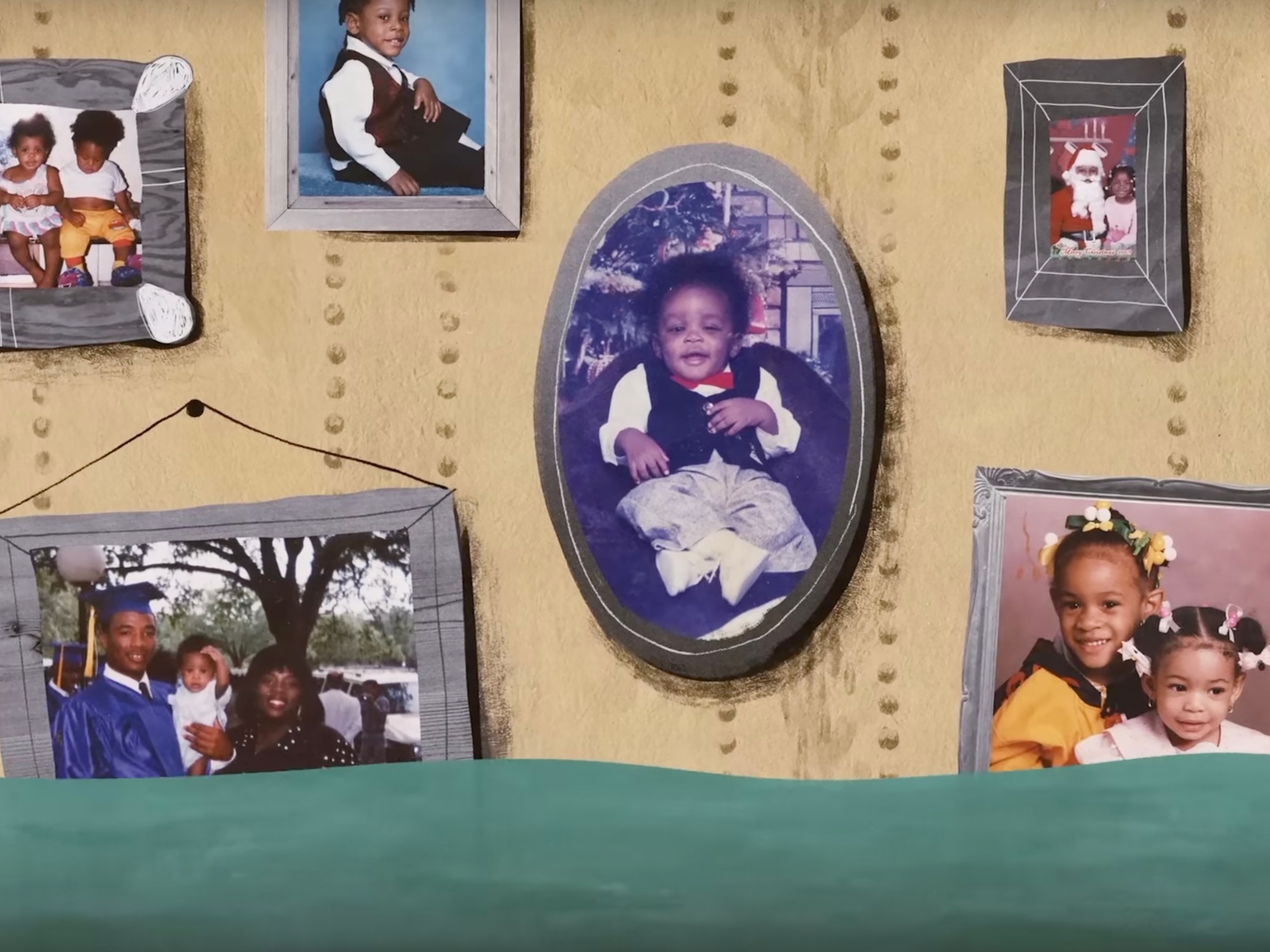
- Film
“Katrina Babies” Documentary Details the Long Shadows Trauma Casts
We’ve all seen news coverage of terrible tragedies, specifically natural disasters, and had our hearts ripped out by footage of people coping with the loss of their homes and livelihoods. We’ve likely, at some point, donated to humanitarian relief funds. But what about, months and years later, the mental health of those who underwent such massive trauma — particularly as children? That’s the issue the documentary Katrina Babies, now available on HBO Max, sets out to examine.
The movie is a highly personal passion project for director Edward Buckles, Jr., who was 13 years old during when Hurricane Katrina hit and flooded his hometown of New Orleans, Louisiana, on August 29, 2005. For his directorial debut, he spent seven years talking to peers who also endured the storm and its life-altering after-effects. As he forthrightly states early in the film: “Nobody ever asked the children how they were doing. So I am.”
Buckles opens Katrina Babies in evocative fashion, allowing more than a full minute of helicopter rescue footage to play with little to no aural accompaniment. He then pivots to a credits sequence comprised of exuberant slow-motion dancing, set to a rendition of “Nobody Knows” by Pastor T.L. Barrett. This contrast — the ebullience, optimism and proud culture of this unique, predominantly African American city, and the shattering impact of Katrina on its potential future — is at the heart of everything the film wishes to explore.
Buckles’ parents, Betty and Edward, offer recollections on their family’s escape and subsequent decampment in Lafayette, Louisiana, but Katrina Babies for the most part hews to its title with its slate of interviewees. Miesha Williams tears up upon realizing she hasn’t ever been asked to share her feelings. Anthony Johnson, 12 when Katrina stuck, speaks about the the “ghosts and gloom” present when he and his family finally returned. Others share memories of rain and crying animals, of being stranded for three days and thinking they were going to die.
Katrina Babies is also mostly a tight-knit affair, consisting of many friends, relatives and acquaintances of Buckles. But he does track down Arianna Evans, a then-nine-year-old whose famously eloquent and extemporaneous TV interview monologue pleading for assistance remains a moral clarion call.
Perhaps most striking and memorable is Cierra Chenier, who was also nine years old when Katrina hit. She reflects on her entire house being reduced to the contents of a single, less-than-full trash bag, and asks, “When so much of your identity is where you’re from, specifically what neighborhood you’re from, and that neighborhood isn’t the same anymore, that house isn’t there anymore, what does that do to your identity?”
Despite no shortage of subjects able to speak quite movingly to this question, Katrina Babies struggles a bit to fully deliver on the considerable emotional potential of its premise. The film doesn’t sketch out Buckles’ own timeline, reflecting a seeming struggle over how much authorial control to exert over the story — how much to personalize it. Buckles himself submits to a sit-down interview (the setting of which provides the set-up for a nice revelation at film’s end) but seems largely uncertain of where and how to integrate this material into the larger whole.
The movie also touches on the scandal of FEMA trailers filled with toxic formaldehyde fumes (one interviewee, Damaris Calliet, has suffered a cancerous tumor as a result); gentrification sped up by a well-meaning rebuilding process; and the troubling lack of therapy or counseling provided to this community. But Buckles, working with editors Gabriel Rhodes, Luther Clement-Lam, and Fiona Otway, doesn’t drill down into or pursue these elements, and so the outrage or discomfort they provoke eventually fall a bit by the wayside.
Katrina Babies is at its best when offering up piercing personal introspection, as it does with Buckles’ memories of a slightly older neighborhood friend, Jacquez Young. “Where I’m from, we know that somebody isn’t gonna grow old with us,” he says. “We know that somebody is gonna either be a victim of the mass-incarceration system or violence, or drugs — we know it.” As Buckles, now a high school media teacher by trade, conducts more interviews and wades deeper into the choppy emotional waters of unprocessed feelings, he talks about finally seeing trauma in other kids, and being able to recognize it for what it is.
Among the film’s other strongest elements is the incorporation of great stylized animation by Antoni Sendra, which Buckles uses at various points, including to bring to vivid life the strongly associative memories of his last pre-Katrina weekend with his cousins and friends.
Overall, Katrina Babies is a worthwhile exploration of a topic which merits more substantive discussion. Those interested in the subject matter, and complementary, deeper-dive portraits of Katrina’s impact, would be well advised to check out Spike Lee’s Peabody Award-winning When the Levees Broke, an excellent four-part docu-series filmed in Katrina’s immediate aftermath, and that project’s 2010 follow-up, If God Is Willing and da Creek Don’t Rise. Collectively, these works all make a powerful point about the inequality of access for treatment to the ongoing effects of trauma.

